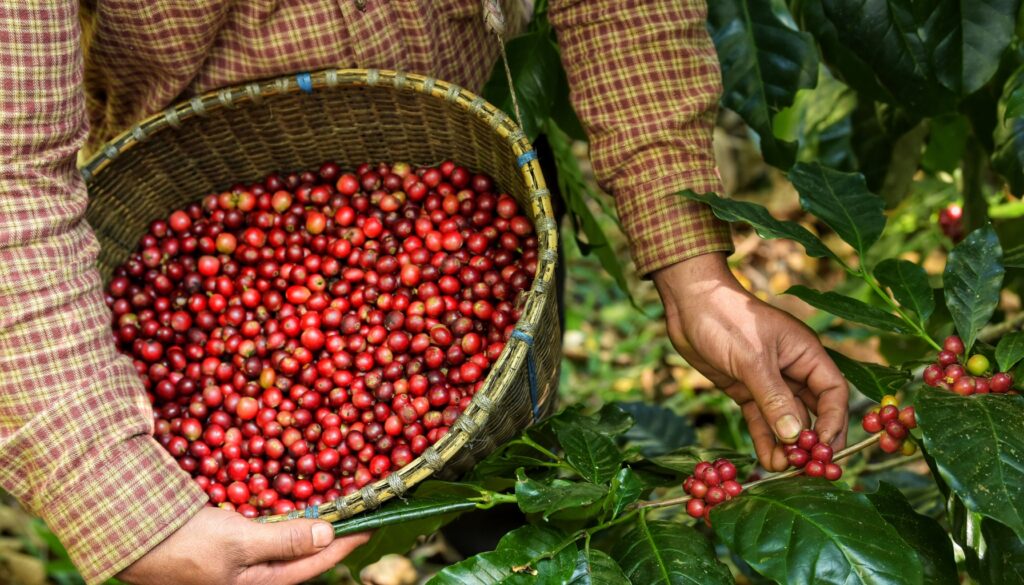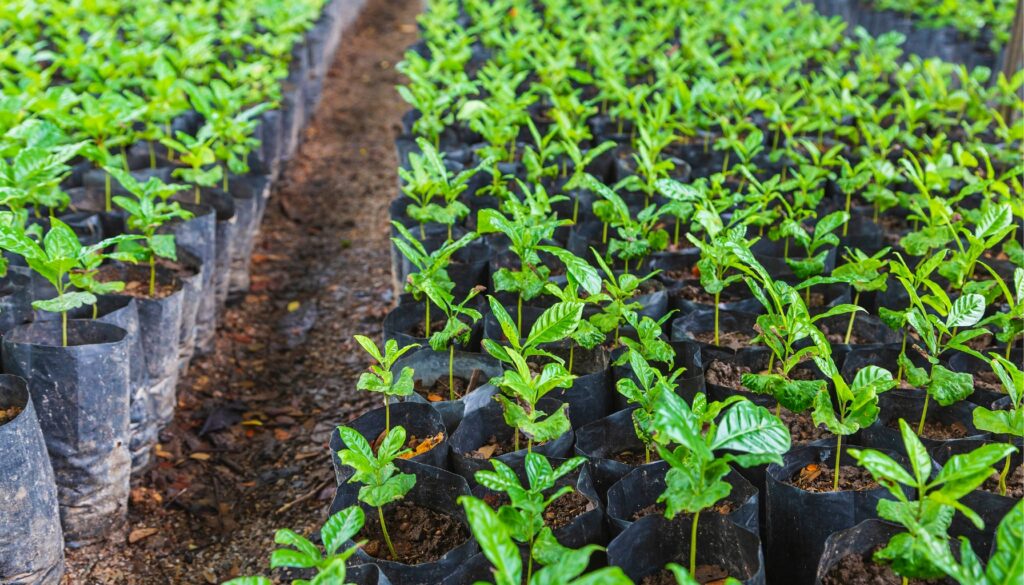In today’s world, where ecological awareness is on the rise, the coffee industry finds itself at a significant juncture. While countless aficionados relish the rich aroma and complex flavors of their daily brew, the path from coffee bean to cup often raises critical environmental questions. Fortunately, a growing number of producers are addressing these challenges head-on by employing innovative, eco-friendly practices in coffee cultivation. This article delves into the intricate tapestry of sustainable coffee farming and showcases unique roasters dedicated to social responsibility and quality. By exploring these practices, coffee lovers can enjoy their favorite beverage knowing that each cup supports a healthier planet.
Understanding Sustainable Coffee
Sustainable coffee embodies various practices aimed at minimizing the detrimental impacts of conventional coffee farming. These methods consider environmental, social, and economic factors to foster a more balanced and ethical coffee supply chain. Farmers, roasters, and consumers all play vital roles in this process, ensuring that quality and integrity remain paramount.
1. Agroforestry Systems
Agroforestry represents one of the most effective sustainable practices in coffee cultivation. This method entails growing coffee plants alongside other trees and crops, effectively mimicking natural ecosystems. By doing so, agroforestry provides shade for coffee plants, enhancing their growth while reducing reliance on chemical inputs.
This practice not only improves biodiversity but also aids in carbon sequestration. Trees absorb CO2 from the atmosphere, thus offsetting some of the carbon emissions associated with coffee production. Furthermore, the shade creates a microclimate that protects coffee plants against extreme weather, rendering them more resilient to climate change.
2. Organic Farming Practices
Organic coffee farming eliminates the use of synthetic fertilizers, pesticides, and herbicides. Instead, farmers rely on natural compost, crop rotation, and biological pest control to nurture their crops. This holistic approach fosters healthier soil and promotes biodiversity.
Because organic farming prioritizes soil health and ecosystem integrity, it often yields superior flavor profiles in coffee. Many enthusiasts discern that organic coffee can exhibit a brighter acidity and more complex flavor notes. Engaging in organic farming signifies an investment in our planet’s future and supports the health of local ecosystems.
3. Water Conservation Techniques
Water scarcity remains a pressing global issue, and its impact on coffee production is significant. In response, innovative farmers adopt methods that drastically reduce water usage during coffee processing. For instance, wet processing techniques typically consume vast amounts of water. Conversely, dry processing methods, where cherries are spread out under the sun to dry, require little to no water.
Additionally, some producers implement closed-loop water systems that recycle the water used during processing. This conservation benefits both the environment and lowers operational costs, making the farming process more sustainable and economically viable.
4. Fair Trade and Direct Trade Practices
Beyond environmental sustainability, ethical considerations play a critical role in promoting sustainable coffee. Fair Trade initiatives ensure that coffee farmers receive fair compensation for their products, improving their livelihoods and fostering community development. This model emphasizes transparency and mutual respect between producers and consumers.
Conversely, direct trade practices enable roasters to purchase coffee directly from farmers. This approach nurtures more personal relationships, allowing for better pricing and quality control. Many premium coffee roasters commit to direct trade, cultivating deeper connections with farmers and advocating for sustainable practices.
5. Biodynamic Farming
Biodynamic farming extends organic practices by incorporating spiritual and holistic approaches to agriculture. This method perceives the farm as a self-sustaining ecosystem, encouraging biodiversity through composting, crop rotation, and lunar cycle planting.
Advocates of biodynamic coffee argue that this philosophy enhances the quality of the coffee while promoting the health of the land and surrounding environment. The meticulous attention to detail and care inherent in biodynamic practices produces coffee with unique flavor profiles that narrate their origins.
Profiling Innovative Roasters
As coffee connoisseurs seek more than just a caffeine fix, a wave of roasters committed to sustainability stands out. These artisans craft their brews with a profound sense of responsibility toward the environment and the communities they impact. Here are some exemplary roasters leading the way in sustainable practices:
1. Blue Bottle Coffee
Rooted in the philosophy of freshness, Blue Bottle Coffee prioritizes direct trade relationships with farmers. By sourcing beans from sustainable farms, they ensure fair wages and environmentally conscious farming methods. Their dedication to quality means that every cup celebrates both the craft of coffee and the well-being of its producers.
2. Intelligentsia Coffee
Intelligentsia has become synonymous with quality and sustainability. Their Direct Trade program fosters personal engagement with farmers, ensuring they support ethical practices. By focusing on small-scale producers, Intelligentsia helps elevate the livelihoods of coffee-growing communities while maintaining a commitment to superior flavor profiles.
3. Counter Culture Coffee
Counter Culture Coffee champions sustainability by employing extensive training programs for farmers to adopt eco-friendly practices. The company’s commitment to transparency shines through in its sourcing practices, which prioritize organic and sustainable certifications. Their dedication to environmental stewardship and social responsibility resonates deeply with environmentally conscious consumers.
4. Onyx Coffee Lab
Onyx Coffee Lab distinguishes itself through an unwavering commitment to sustainability and quality. They prioritize sourcing from farms that practice regenerative agriculture, which emphasizes restoring and rehabilitating ecosystems. Their innovative approach extends to packaging as well, with options designed to minimize waste and promote recycling.
5. Stumptown Coffee Roasters
Stumptown Coffee Roasters has built a reputation as a pioneer in the specialty coffee movement. They work directly with coffee farmers in Latin America and East Africa, ensuring adherence to sustainable practices. Their transparency in sourcing and dedication to quality reflect a commitment to creating relationships that benefit both the environment and the people behind the coffee.
Experiencing Coffee with a Conscience
As consumers, we possess the power to support sustainable coffee practices through purchasing decisions. By choosing brands that prioritize environmental stewardship and ethical sourcing, we invest in a more sustainable future for coffee cultivation.
The Ritual of Brewing Sustainably
In addition to supporting sustainable producers, coffee enthusiasts can adopt eco-friendly practices in their own brewing rituals. Here are several ideas to consider:
1. Choose Reusable Filters
Single-use coffee filters contribute to unnecessary waste. Consider switching to a reusable metal or cloth filter, which not only reduces waste but can also enhance the flavor profile of your coffee.
2. Opt for a French Press or Pour-Over Method
These brewing methods typically require less energy and water compared to electric coffee makers. They also provide a more intentional and mindful brewing experience, allowing you to savor each cup.
3. Use Organic Beans
Whenever possible, select organic coffee beans. These beans are produced without synthetic pesticides or fertilizers, promoting healthier ecosystems and endorsing responsible farming practices.
4. Compost Coffee Grounds
Coffee grounds are rich in nitrogen, making them an excellent addition to compost. They can also enrich garden soil, helping to create a sustainable cycle within your own home.
5. Educate Yourself and Others
Stay informed about sustainability in coffee cultivation. Sharing your knowledge with fellow coffee lovers encourages them to make more conscious choices. Together, we can elevate the coffee-drinking experience to one that prioritizes both quality and environmental health.
Looking Ahead: The Future of Sustainable Coffee
The future of sustainable coffee hinges on innovation, collaboration, and a collective commitment to better practices. As consumers become increasingly discerning, the demand for transparency and quality continues to grow. Forward-thinking coffee producers and roasters already adapt to these changes, pioneering new methods that prioritize ecological health and social responsibility.
By embracing sustainable practices, the coffee industry can thrive while preserving the beauty of the landscapes that provide our beloved beverage. From lush, high-altitude farms to cozy cafés that serve artisan brews, every step in the coffee journey holds the potential for positive impact.
In conclusion, as we enjoy our favorite brews, let’s raise our cups to the hardworking farmers and visionary roasters dedicated to creating a more sustainable coffee culture. Every sip can serve as a testament to our commitment to the planet, ensuring that future generations can also revel in the exquisite experience of a beautifully brewed cup of coffee. The journey of sustainable coffee embodies not just indulgence but also responsibility—a journey worth embarking on for every true coffee connoisseur.
The Impact of Sustainable Coffee on Global Practices
Understanding Footprints and Futures
The ecological and social footprints of sustainable coffee extend far beyond individual cups. The shift toward sustainable practices among producers, roasters, and consumers has profound implications for global agricultural practices and environmental health.
Sustainable coffee farming not only conserves biodiversity but also mitigates climate change effects through practices like carbon sequestration and reduced chemical usage. The long-term implications can lead to more resilient ecosystems capable of withstanding the pressures of climate change.
As the global coffee market becomes increasingly competitive, sustainability emerges as a pivotal factor that can determine a brand’s success. Roasters committed to sustainable practices are not only carving out a niche but also influencing industry standards and consumer preferences.
Engaging Consumers in Sustainability
As awareness of environmental issues rises, consumers actively seek out brands that resonate with their values. This shift in consumer behavior imposes pressure on coffee producers to adopt sustainable practices. Transparency becomes vital as consumers demand to know the origins of their coffee and the environmental impact of its production.
The trend toward sustainable coffee cultivates a community of informed consumers who prioritize ethical sourcing. This phenomenon inspires a new generation of coffee lovers who appreciate the intricate relationship between their beverage and the planet. The ripple effects of this awareness extend to other commodity markets, encouraging a broader movement toward sustainability.
Education and Advocacy
Education plays a crucial role in fostering a culture of sustainability within the coffee industry. Organizations and NGOs advocate for sustainable practices, providing resources to farmers and roasters. Furthermore, educational campaigns targeting consumers can demystify sustainable coffee, guiding them in making informed choices.
By elevating awareness about the environmental and social implications of coffee farming, we can inspire consumers to engage with their favorite brands. This collective effort can drive positive change, ensuring that sustainability becomes imprinted in the culture of coffee production.
Combining Tradition with Innovation
The intersection of traditional practices and modern innovation also shapes sustainable coffee farming. Many indigenous farming methods align with contemporary sustainability ideals, emphasizing the importance of biodiversity and resource conservation.
Farmers incorporating age-old traditions alongside innovative technologies can enhance productivity while maintaining environmental integrity. This approach not only honors the heritage of coffee cultivation but also reinforces the importance of sustainability in preserving these practices for future generations.
The Role of Technology
Technology plays an essential role in revolutionizing sustainable coffee practices. From precision agriculture techniques to the development of environmentally friendly processing methods, technological innovations enhance efficiency while minimizing ecological footprints.
For instance, farmers can utilize data analytics to optimize water usage, monitor soil health, and assess plant stress. These tools empower producers to make informed decisions that align with sustainable practices. Additionally, advancements in processing technology, such as solar drying systems, reduce water consumption and energy usage.
The Road to a Sustainable Coffee Economy
Achieving a sustainable coffee economy requires a collaborative effort from all stakeholders involved in the coffee supply chain. This collaboration can lead to exciting initiatives, such as cooperative farming models, ensuring fair compensation for farmers while promoting environmental stewardship.
Certification programs play a pivotal role in validating sustainable practices, providing consumers with a tangible way to support responsible sourcing. However, it’s essential to strike a balance between certification and the need for direct relationships between farmers and roasters. Building trust and transparency fosters an environment where sustainability thrives.
Conclusion: A Shared Responsibility
As we navigate through the evolving landscape of sustainable coffee, it’s crucial to recognize that sustainability is a shared responsibility. Producers, roasters, and consumers alike must contribute to this collective endeavor, ensuring that coffee cultivation evolves alongside our growing environmental consciousness.
In this journey, we discover a deeper connection to our coffee—one that transcends mere enjoyment and enters the realm of responsible indulgence. Sustainable coffee practices not only promise a brighter future for the planet but also engender a more meaningful relationship between us and the land that nurtures our beloved beans.
Let us celebrate every cup as a milestone in the journey toward sustainability, enlightening ourselves and others about the powerful impact our choices can have. Together, we can create a sustainable coffee culture that honors both quality and the health of our planet, paving the way for generations of coffee lovers to come.
With each sip, we contribute to a narrative of environmental stewardship, social justice, and holistic well-being. This journey isn’t merely about coffee; it’s about nurturing a sustainable future for all.


